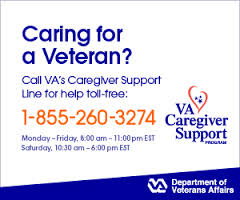It Makes a Difference to This One
By Laura Chirio
I’ve had many people ask me
why I chose the profession I did. For a long time, I haven’t known exactly what
to say in return. Finally, I have come to the realization that my
lack of witty response is not evidence of insecurity or incompetence.
"I always wondered why somebody doesn't do something about that. Then I realized I
was somebody." - Lily Tomlin. As for me, my decision to
become a Social Worker was much less a choice, but rather a calling.
Although I am not
a suicide survivor myself, the effects of suicide have greatly impacted my
life. So, here I go, I’ll just say
what’s on my heart. My heart is heavy. Tomorrow marks the second anniversary of
the suicide of SGT Ben Lewis. Saturday is the second annual memorial for PFC
Brian (Bear) Smith, after his suicide in 2013. In June, I
will join many others at the memorial for SGT Zack Potter, whom I have come to
know, even after his passing. My uncle, MAJ Larry Chirio took his own life over
ten years ago. Suicide is devastating
and seriously impacts entire families and communities. It’s a ripple effect so
large that often even those even on the outside suffer damaging effects. My heart is heavy because there are so many
families who will never get their loved one back.
This I can
say for certain - statistics are misleading. It has been reported that 22 military
veterans commit suicide every day. According to the US Department of Veterans
Affairs Suicide Data Report, 2012; 147,763 suicides were reported from 21 states.
That figure left out 29 states including those with high veteran populations
like California and Texas. I’ll leave that calculation up to you.
Have you ever felt so
overwhelmed by something so big, you think there’s no way you can make a
difference? Yeah, us too. Have you ever been told that you can’t make a difference?
Yeah, us too. Sometimes I feel overwhelmed and I oftentimes take on more than I
can handle and need to scale myself back. One of my
favorite stories is the “starfish story.” On days when I feel
overwhelmed, I think of this story. I think, even if I’ve helped just one - it’s
made a difference to that one. But it’s never just one. It’s a ripple. It’s
many. It’s a family. It’s a community.
When we founded Veteran’s
Refuge Network, we decided that even if we only help just ONE person, everything we’ve worked for was worthwhile. Mother
Teresa said, “Never worry about numbers. Help one person at a time and always start with
the person nearest you.” It’s true. Don’t get caught up in the mess of things and lose
sight of what’s right in front of you.
Help those around you when they need it
and always do your best. Don’t be afraid to ask direct questions. Recognize warning signs. Recognize DANGER.
D – Depression
A – Alcohol and
drugs
N – Negativity
G – Giving
possessions away
E – Estrangement
R – Revenge
Be informed. Be a friend. Be
a gatekeeper. Be the one. Because, even if you can only help one, it makes a difference to that one.
















